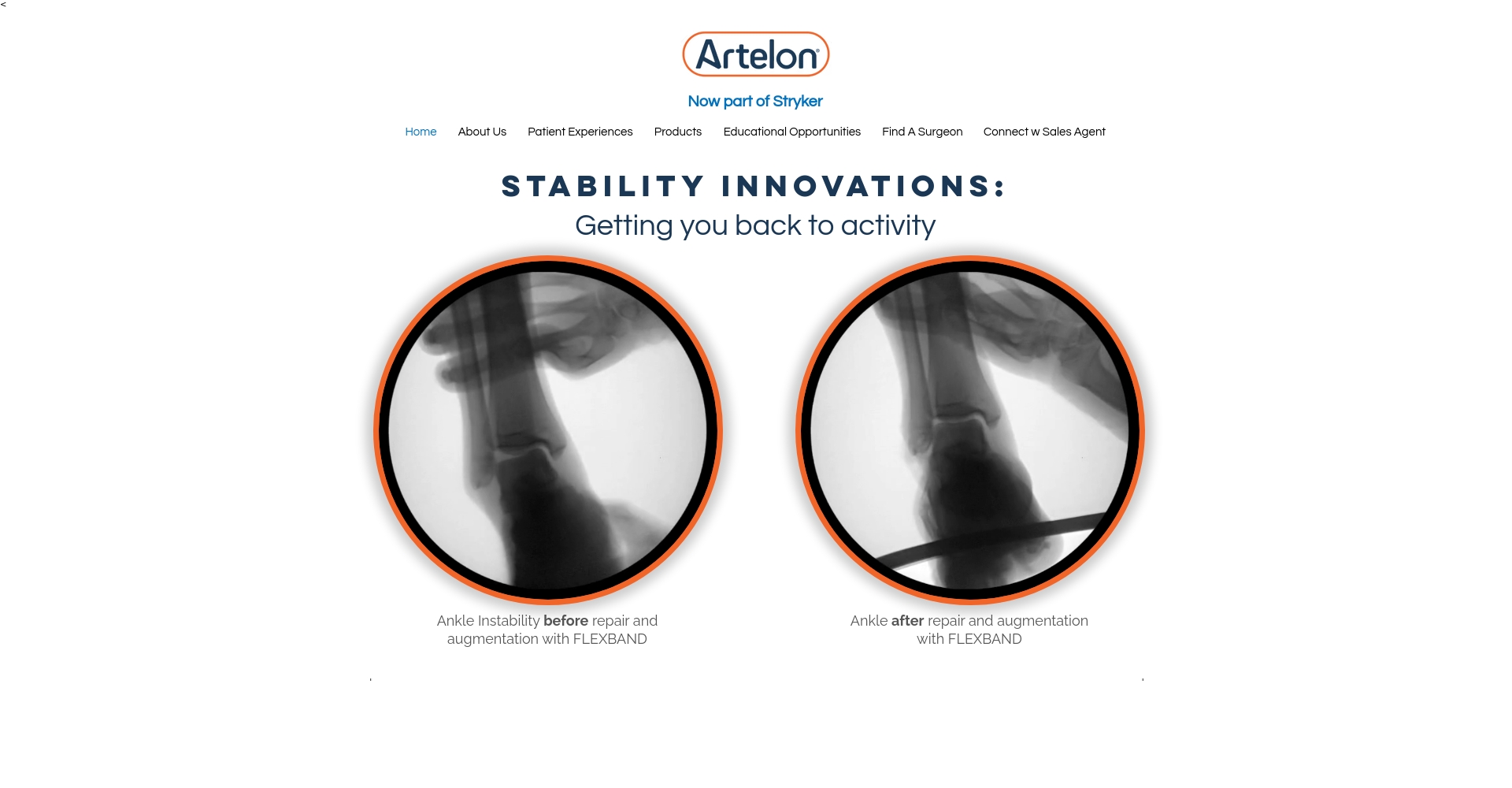Stryker's acquisition of Artelon, Inc., completed on July 15, 2024, marks a significant milestone in the medical technology industry. By integrating Artelon's innovative soft tissue fixation products, Stryker aims to enhance its offerings in the foot and ankle and sports medicine segments. This strategic move is expected to improve patient outcomes and solidify Stryker's competitive edge in these specialized fields.

Founded in 2002, Artelon specializes in innovative solutions for tendon and ligament injuries. Its core product, FLEXBAND, is designed for ankle instability repair and augmentation. FLEXBAND stands out in the market due to its unique features: it enhances the strength of repaired and healing tissue, maintains soft tissue tension during active motion, and integrates into regenerating tissue without losing mechanical integrity too quickly, fully integrating within 4 to 6 years.
Stryker is a leading medical technology company, impacting over 150 million patients annually with its innovative devices and equipment. The company offers advanced medical and surgical tools, orthopaedic solutions for joint replacement and trauma, and neurotechnology for neurosurgical procedures. Stryker also provides services like financial options and equipment maintenance. Known for its significant market position, Stryker is recognized for improving clinical, financial, and operational outcomes in healthcare, while maintaining a strong commitment to corporate responsibility and sustainability.
Stryker completed its acquisition of Artelon, Inc. on July 15, 2024. This acquisition aligns with industry trends focusing on advanced biomaterial technologies for soft tissue repair. The timing is significant as it positions Stryker to meet the growing demand for specialized orthopaedic and sports medicine products, enhancing their competitive edge in these segments. This move is expected to drive innovation and improve patient outcomes in the foot and ankle and sports medicine markets.
The acquisition of Artelon by Stryker has led to significant changes in operations and management. Artelon's portfolio is being integrated into Stryker's Trauma & Extremities and Endoscopy divisions, enhancing their soft tissue fixation solutions. While both companies will continue to operate as separate entities until the transaction closes, the long-term plan involves leveraging Artelon's synthetic technology to complement Stryker's existing products. This strategic move aims to strengthen Stryker's market position and drive innovation in the foot and ankle and sports medicine segments.
In terms of product offerings, the acquisition expands Stryker's range of solutions, particularly in ligament and tendon reconstruction. Artelon's technologies, known for their biological and mechanical restoration capabilities, will now be part of Stryker's advanced medical tools. Employee reactions have not been explicitly detailed, but the integration is expected to bring new opportunities and resources. Customers are likely to benefit from the enhanced product lineup, which promises improved patient outcomes. For founders considering business transitions, tools like Sunset can assist in managing such processes compliantly and efficiently.